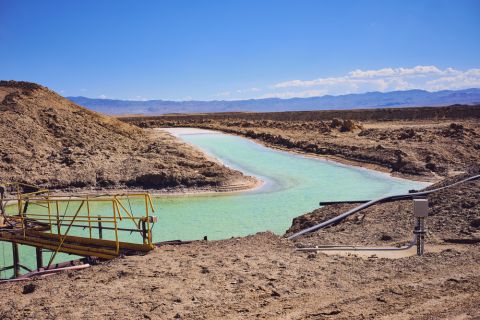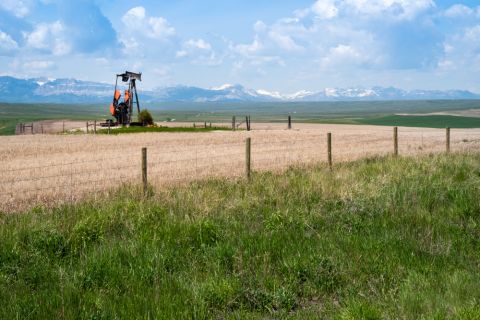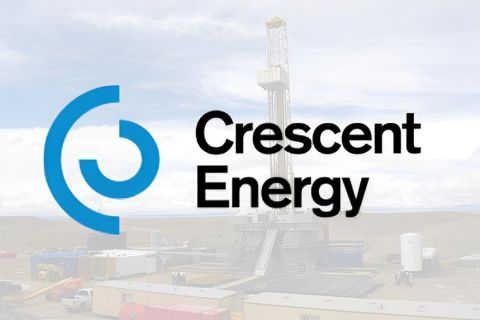The “Great Crew Change” has been widely reported in the upstream oil and gas press, referring to the fact that, because of the age demographics of our industry, a high proportion of the workforce will be eligible to retire in the next few years. The concern is that this will result in a sudden and irrecoverable loss of knowledge and expertise.
Specialist global recruitment company Working Smart, with the support of the American Association of Petroleum Geologists (AAPG), conducted research in May 2011 to establish whether this concern is justified and what steps can be taken to alleviate its effect. Working Smart issued an online questionnaire to people in its own database and also to AAPG members aged 55 and over, asking them about their future employment intentions.
There was a good response from people in 45 countries. Ten percent of respondents had already retired from the industry, 43% were working as employees, 34% were working as contractors, and 13% were seeking employment. Of those working, 63% were with operators and 36% with service companies. A majority (78%) of respondents considered the Great Crew Change to be a fact.
Although many people will retire from their permanent employment at 55 (some starting to draw their pension), the average intended (preferred) retirement age of respondents was 65.

Almost a quarter of those surveyed said they would consider working past retirement age. (Images courtesy of Working Smart)
The survey asked if they “expected” to work beyond their intended retirement age: 23% felt they would do so. Of this 23%, 83% want to work as contractors, and 54% are willing to work at least 4 days a week or as many days as they can secure.
The survey suggested reasons why one would work beyond intended retirement age. Respondents were invited to weight these reasons or add their own. The main consideration for continuing to work was not for financial gain but because they enjoy working.
Spanning the skills gap
When asked how companies can overcome the problem of skills shortage, the most commonly held view was that mentoring younger staff was a prerequisite to minimizing the effect of the great crew change -- 77% of respondents were currently mentoring staff, 60% through team participation and 40% on a one-to-one basis. However, there was a widespread view that more is needed.
Of the 78% of the respondents who stated that the Great Crew Change was a fact and that it would lead to skill shortages, the survey asked for comments as to how companies can overcome this problem. There were many variations, but the overwhelming view was that we need to transfer knowledge to the younger generation to secure a sustainable industry for the future. Some other views, as quoted from survey replies, were:
- Senior managers, “especially the accountants who are now running many of our companies” need to take a longer term view of the business;
- With junior staff there is a lack of experience coupled with an inability to be able to evaluate the problem from first principles. Computer programs have allowed us to imagine all sorts of scenarios, but they don't ask which is the most likely or if there is a particular fact that makes a series of outcomes impossible. Junior staff need to be mentored and supported;
- A proactive work schedule is required to allow junior staff to take the lead in the presence of seniors. This will not only allow seniors to correct and keep them on track independently (transfer of skills) but also will allow the management to have smooth changeover before the seniors say goodbye;
- We need a more enlightened approach to hiring people over 55;
- The experience, knowledge, and skills of people with 20-30 years of experience in the oil industry should be used for solving specific, challenging problems;
- Companies need to have succession planning -- There is no shortage of "bright young things" that can be trained;
- Oil companies and suppliers need to stop the boom and bust cycle of pricing. Fair profit margins should be agreed upon, allowing steady investment and staff retention on both sides. Collaboration and mutual cooperation is the answer;
- In the next 10 years senior level management will retire, and we need to prepare young talent for this challenge. Today we have to put forward the diversity of cultures, ethnicity, etc.;
- Now that desktop sharing is so easy, mentoring and experience transfer should be easy to implement, even if some oldies work from home; and
- The oil companies need to set up long-term training programs in conjunction with governments and universities to ensure an adequate supply of skilled people. The key is “long-term.” There is still a lot of life left in the oil and gas business.
Perhaps we need a “SunShade” program, in which every experienced professional – whether employed or contracted -- mentors at least one junior member of staff, actively involving them in their projects. This would surely create a more balanced and technically and commercially enriched workforce.
The survey asked for overall comments regarding skill loss, knowledge transfer, and development of staff. Some key ideas included removing barriers to hire (e.g. insisting on minimum MSc or 2 years experience), better succession planning, and greater flexibility for contractors. Many respondents felt that the industry has itself to blame. “Greed from both oil companies and supplier/service providers -- boom and bust -- has driven people out of the industry, never to return,” said one respondent. “Short-term profits were all we focused on. The industry as a whole has to stop reacting for short-term gains.”
Another respondent voiced concerns about the attractiveness of the industry. “We have a decline in the number of students entering geoscience and engineering degrees, we appear to attract high-profile bad press with little counter good press, the future is alleged to belong to renewables and hydrocarbons are seen as a dirty business, there’s a lack of funding support for MSc students although many employers insist on this higher degree, and there is a decline in graduate recruitment intake and programs.”
It was suggested that the industry needs an effective PR machine to promote itself. There has been a direct correlation between the popularity of forensic science TV shows and the huge increase in the number of students seeking to enter that industry. Maybe the time has come for the oil industry to enter the movie business or have a global PR remit?

Most respondents who would consider working beyond retirement age would do so because they enjoy their jobs.
Career development, succession planning, and retention strategies need to become of key importance to companies in filling the skill shortage gap. With companies developing and promoting from within, there is a void of more junior staff in many organizations. Attracting and hiring new geoscience and engineering graduates is essential to ensuring a viable workforce for the future.
The good news is that we have a large number of these young people qualified to second degree level and available for work globally. Working Smart attracts more than 200 graduate applicants for any junior-level role -- they are available. We as an industry need to take up the challenge of hiring, training, mentoring, and developing the “New Crew.”
Recommended Reading
Kimmeridge Fast Forwards on SilverBow with Takeover Bid
2024-03-13 - Investment firm Kimmeridge Energy Management, which first asked for additional SilverBow Resources board seats, has followed up with a buyout offer. A deal would make a nearly 1 Bcfe/d Eagle Ford pureplay.
M4E Lithium Closes Funding for Brazilian Lithium Exploration
2024-03-15 - M4E’s financing package includes an equity investment, a royalty purchase and an option for a strategic offtake agreement.
Laredo Oil Subsidiary, Erehwon Enter Into Drilling Agreement with Texakoma
2024-03-14 - The agreement with Lustre Oil and Erehwon Oil & Gas would allow Texakoma to participate in the development of 7,375 net acres of mineral rights in Valley County, Montana.
California Resources Corp. Nominates Christian Kendall to Board of Directors
2024-03-21 - California Resources Corp. has nominated Christian Kendall, former president and CEO of Denbury, to serve on its board.
Uinta Basin: 50% More Oil for Twice the Proppant
2024-03-06 - The higher-intensity completions are costing an average of 35% fewer dollars spent per barrel of oil equivalent of output, Crescent Energy told investors and analysts on March 5.





